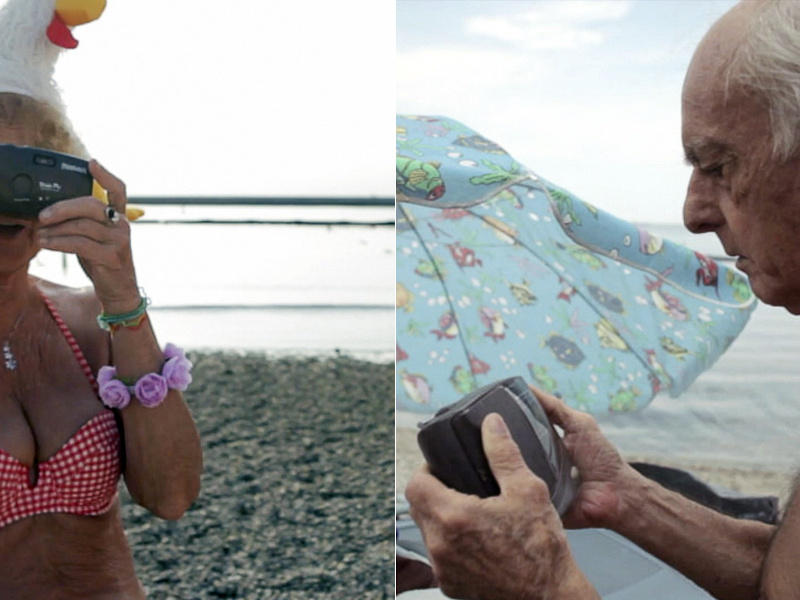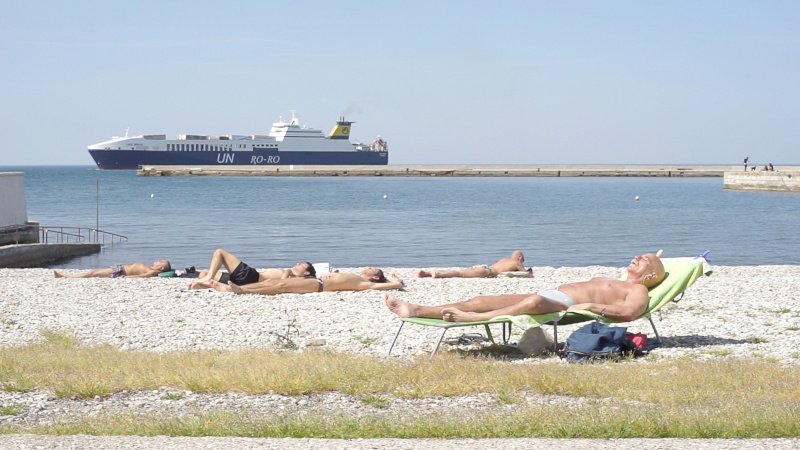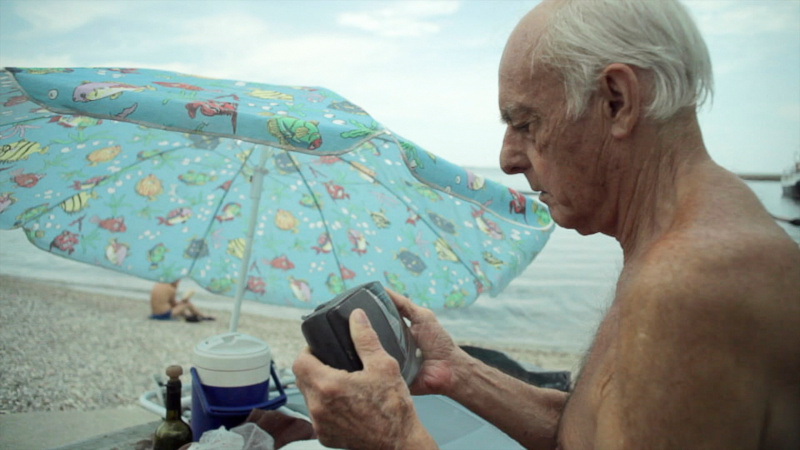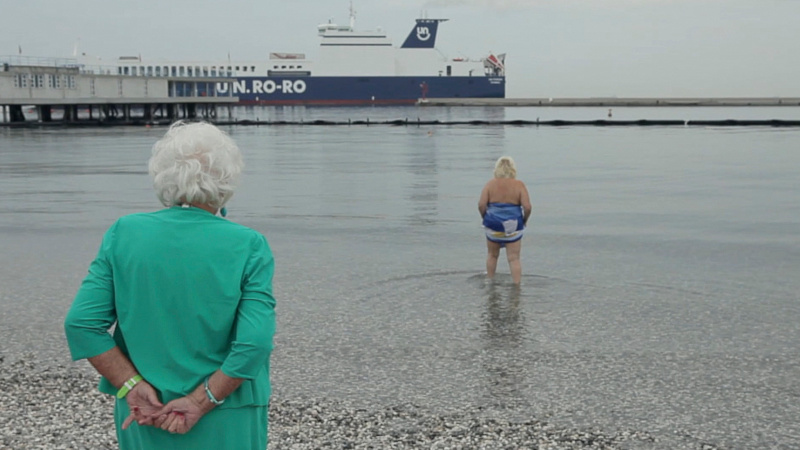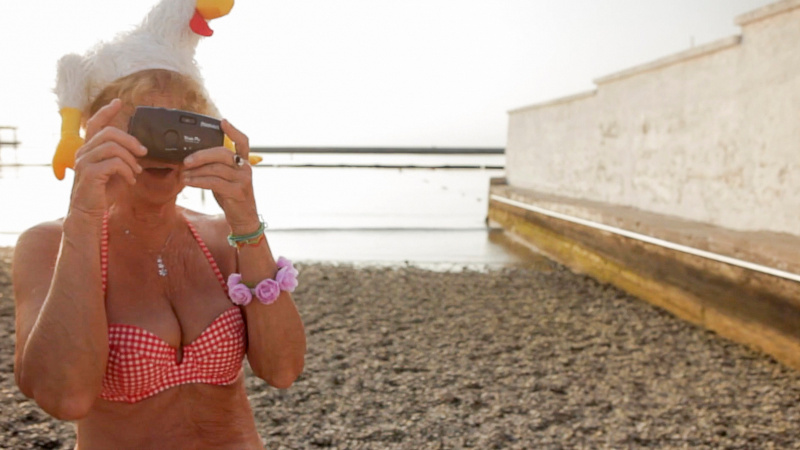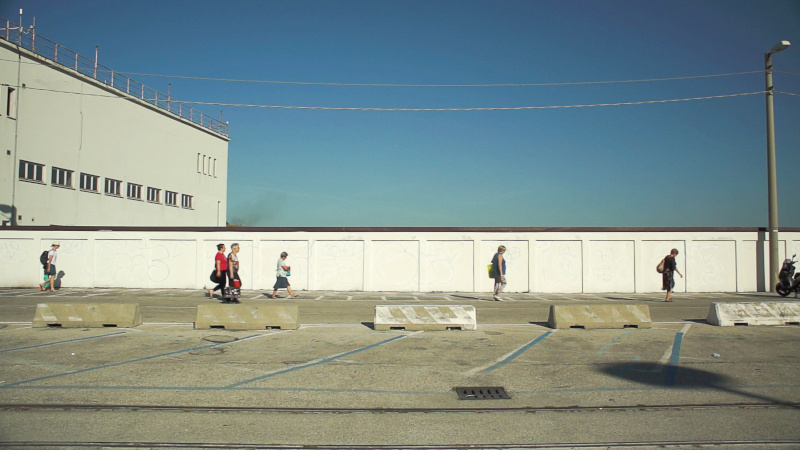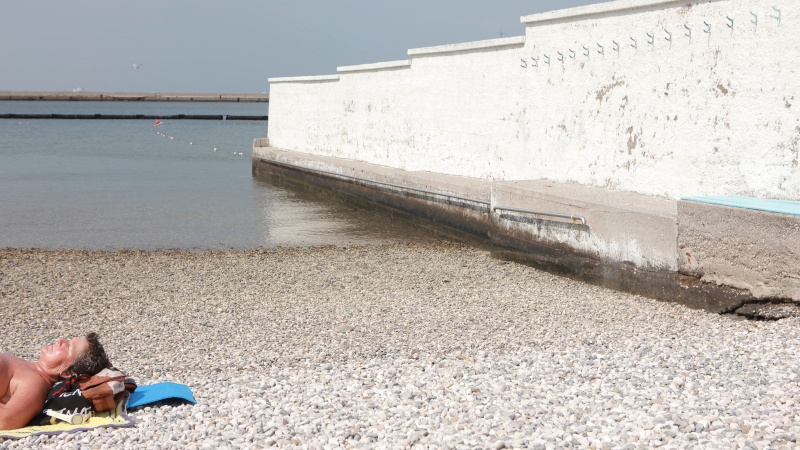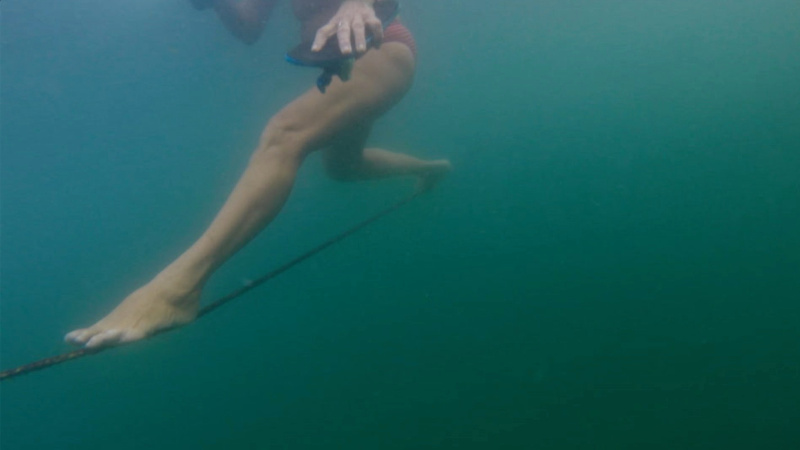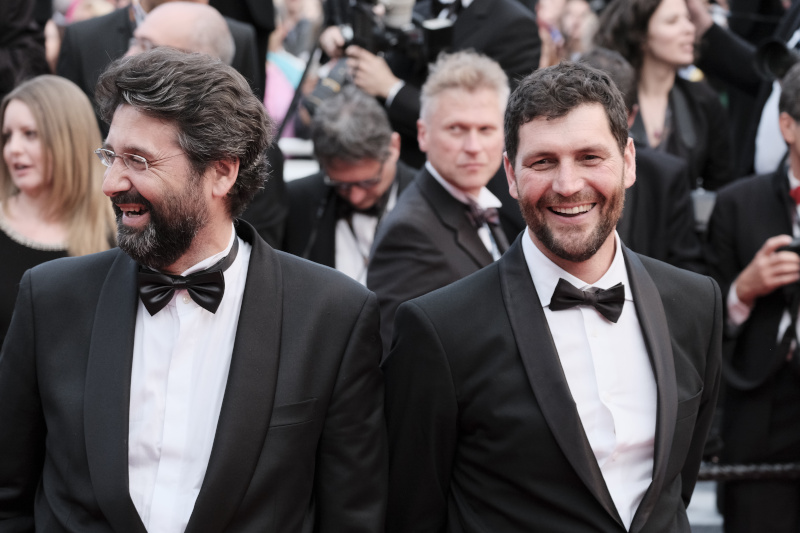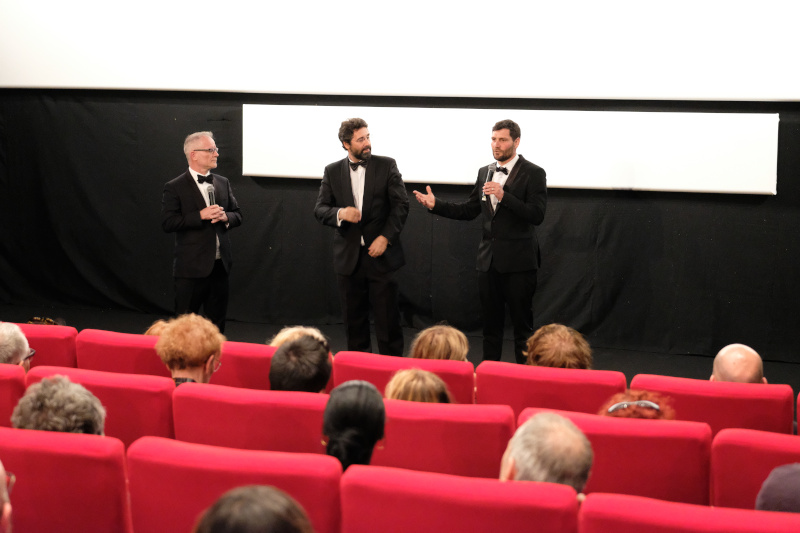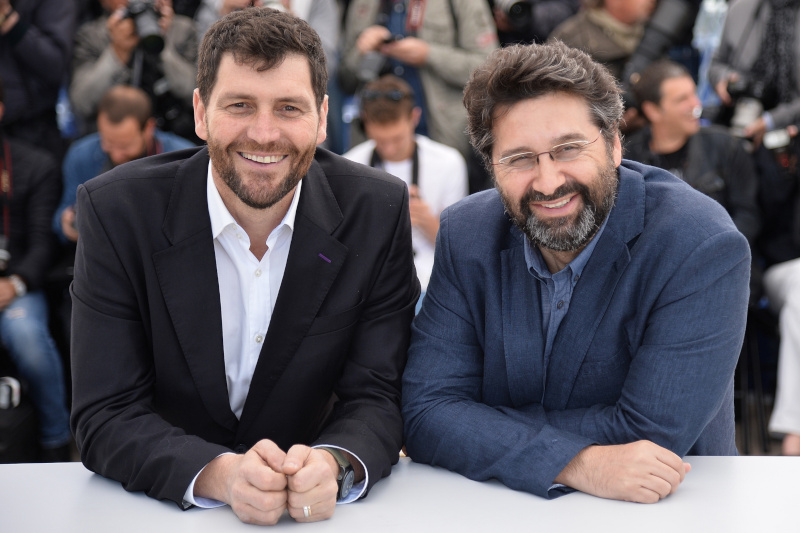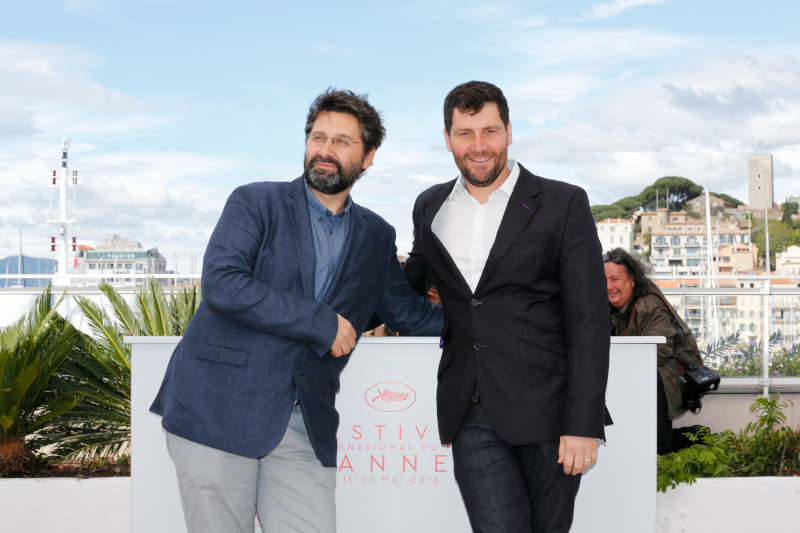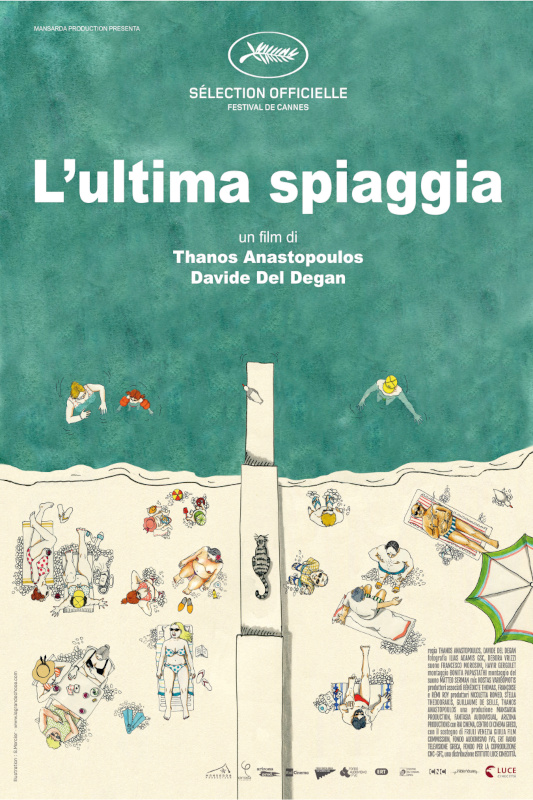The Last Resort (2016)
L'ultima spiaggia [ITA]
L’ultima spiaggia / The Last Resort tells the stories of beachgoers of a popular Trieste beach, where a wall still separates men from women. A film about boundaries, identities and discrimination. A tragicomedy on human nature.
- Film kind: documentary
- Duration: 118’
- Year: 2016
- Country: ITA, GRC, FRA
- Format: DCP
- Language: Italian, Slovenian
- Directors: Thanos Anastopoulos, Davide del Degan
- Original idea: Thanos Anastopoulos, Nicoletta Romeo
- Screenplay: Thanos Anastopoulos, Davide del Degan
- Cinematography: Ilias Adamis GSC, Debora Vrizzi
- Editing: Bonita Papastathi
- Sound: Francesco Morosini, Havir Gergolet
- Sound editing: Matteo Serman
- Production: Mansarda Production (ITA), Fantasia Audiovisual (GRC) and Arizona Productions (FRA)
- In coproduction with: Rai Cinema and Greek Film Centre
- With the support of: FVG Film Commission, Fondo Audiovisivo FVG, ERT - Hellenic Broadcasting Corporation and CNC (the French-Greek coproduction support section)
- Copyright: Fantasia Audiovisual Ltd, Athens (fanfilmpro@gmail.com)
- Full credits available on the webpages of Arizona Productions [FRA] and Fantasia Filmworks
- Film festivals (a selection): Cannes - Official Selection (France, 2016), La Rochelle’s International Film Festival [FRA] (France 2016), Haifa International Film Festival (Israel, 2016), Prizren DokuFest (Kosovo, 2016), K3 Film Festival (Villach, Austria, 2016), Tbilisi Docs (Georgia, 2016), Visioni dal mondo [ITA] (Milan, Italy, 2016), Festival du cinéma italien de Villerupt [FRA] (France, 2016), Ciné Salé (Le Havre, France, 2016), Festival du court-métrage d’Auch [FRA] (France, 2016), Festival cinématographique d’autumne [FRA] (Gardanne, France, 2016), Athens International Film Festival (Greece, 2016), This Human World - International Human Rights Film Festival (Vienna, Austria, 2016), The Greek Film Festival in Berlin - Hellas Filmbox (Germany, 2017), Thessaloniki Documentary Film Festival (Greece, 2017), Bergamo Film Meeting [ITA] (Italy, 2017), Hot Docs (Toronto, Canada, 2017), Kino Otok - Isola Cinema (Izola/Ljubljana, Slovenia, 2017).
- Awards: Iris Award given by the Hellenic Film Academy for excellence in Greek cinema - Best Documentary Film, 2017.
Videogallery
Trailers
Extracts
Photogallery
Film stills
Other images
Long synopsis
L’ultima spiaggia / The Last Resort illustrates the microcosm of a public beach in Trieste, which is divided in two by a wall – men on one side, and women on the other. Its official name is La lanterna / The Lantern, but the locals call it “El pedocìn”, a word which refers to the local dialect word for sea mussels ("pedoci"). A place frozen in time, the beach gathers visitors of various origins: Italians, Slovenians, Serbians, Greeks, Jews, Germans, Austrians and Americans. Real characters of a tragicomedy on human nature, they are mostly lonely individuals with a difficult past (and sometimes present), but also of great benevolence. For many of them the beach is their last refuge.
The film shows the beach throughout all the four seasons: in winter, when there are only a few people, mainly men; in spring, as it gets warmer and the resort gradually livens up; in summer, when it gets crowded and lifeguards work under the watchful eye of the female beachgoers; and in autumn, when buoys are pulled ashore, and the regulars say goodbye until the following year. On September 30, for the annual party celebrating the closing of the season, the wall gate is opened. Men and women get ready: food, wine, songs and cheerfulness. Yet, nobody crosses the boundary.
In a city where borders have consistently been changing, but barriers, whether real or symbolic, have mostly managed to crumble, the Pedocìn wall is still standing. However, somewhat paradoxically, it does not divide people, but preserves their freedom. Its presence calls for a reflection on various identity questions, and for a better understanding of frontiers that marked Trieste’s 20th century history.
Festival circulation
The film premiered in the 69th Cannes Film Festival (May 12, 2016, 8:15 PM, hall “Soxientieme”). Following the Cannes screening, it had a significant festival circulation, being shown in 17 other film festivals only in the first year, 2016/2017. This included screenings in nine different countries – apart from France, Italy and Greece, i.e. the countries where the film’s producers come from, it was also shown in Austria, Canada, Germany, Georgia, Israel, Kosovo and Slovenia. Among these festival appearances the most significant are the ones in La Rochelle, Thessaloniki, Athens and Toronto (Hot Docs). The fact that the film is coproduced by production houses from three different countries has also aided its festival circulation, enabling it to be screened at both the festivals of Greek (Berlin, Germany) and of Italian cinema (Villerupt, France). It has also taken part in other thematic film festivals, such as the festival Ciné Salé, dedicated to the films about the sea (Le Havre, France) and This human world, dedicated to the theme of human rights (Vienna, Austria).
Media and public interest
As it premiered in the prestigious Cannes film festival L’ultima spiaggia immediately provoked considerable media interest, with reviews published in the major anglophone cinema magazines, such as “The Hollywood Reporter”, “Screen Daily”, and the “Variety”. Its subsequent festival circulation enabled the film with a continuous international media coverage, including the reports in various media in France (among others: “L’Obs – Le Nouvel Observateur” [FRA]), Italy (among others: La Repubblica TV [ITA]), and Slovenia (among others: “Primorski” [SLV]).
About the filmmakers
Born in Athens, filmmaker and producer Thanos Anastopoulos (1965) studied philosophy at the University of Ioannina (Greece), before enrolling in the post graduate studies at the University of Paris I and the EHESS. Following the success of his first feature film Atlas – All the Weight of the World (2004), his second film Correction was invited to over 60 film festivals worldwide and won numerous awards. It was also selected as Greece’s entry for the Academy Awards, and was nominated for the European Film Awards. His 2013 film The Daughter won Best Directing, Best Screenplay and Best Photography awards at the Hellenic Film Academy Awards. Born in Trieste, filmmaker and screenwriter Davide del Degan (1968) studied political science in his hometown, before starting to work as a cameraman, assistant director and editor for various regional and national TV documentaries. His short film Interno 9 earned him the Italian Golden Globe (foreign press award) and a nomination for the best short film David di Donatello Award [ITA] given by the Academy of Italian Cinema (2004). Another short film of his, Habibi, received the 2011 Italian film critics award Nastro d’argento [ITA]. In 2012 he started a regular collaboration with Andrea Magnani (see Triestine girls - section About the filmmakers) and the Pilgrim Film [ITA]. L’ultima spiaggia (2016) is his first feature length documentary film.
NB: Thanos Anastopoulos’s and Davide del Degan’s film L’ultima spiaggia / The Last Resort should not be mistaken with the TV documentary of a similar title, L’ultima spiaggia – Pola fra la strage di Vergarolla e l’esodo (Alessandro Quadretti, Officinema, 2017), which was made in collaboration with Rai Cinema [ITA] in the framework of “Giorno del ricordo”. This TV documentary discusses the 1946 bomb explosion in the Vergarolla beach in the town of Pola in Istria. In addition, Stanley Kramer’s science fiction film On the beach (U.S.A, 1959) is also translated in Italian as L’ultima spiaggia.

